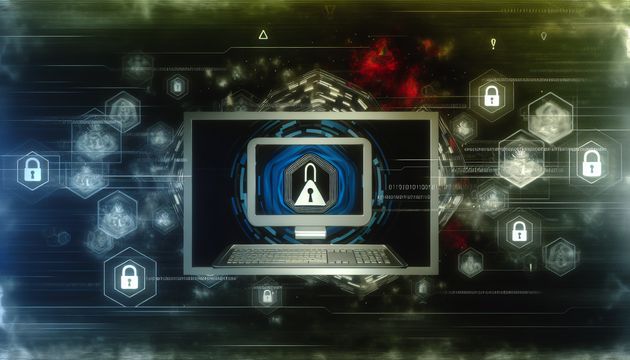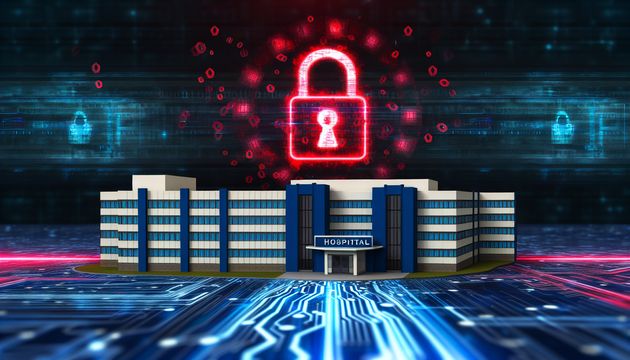
UNFI Cyberattack: A Wake-Up Call for Supply Chain Cybersecurity
The cyberattack on United Natural Foods, Inc. (UNFI) serves as a stark reminder of the vulnerabilities inherent in modern supply chains. This incident not only disrupted UNFI’s operations but also exposed significant weaknesses in its supply chain infrastructure. According to TechCrunch, the attack forced the company to revert to manual processes, severely impacting its ability to fulfill orders efficiently. The reliance on digital systems, as highlighted by Omni Talk, underscores the delicate balance between operational efficiency and system resilience. This report delves into the multifaceted impact of the cyberattack on UNFI, exploring operational disruptions, customer challenges, and the broader implications for cybersecurity in the food distribution sector.
Impact on Operations and Supply Chain
Operational Disruptions
The cyberattack on United Natural Foods, Inc. (UNFI) significantly disrupted its operations, leading to a temporary shutdown of its systems. The attack forced UNFI to rely on manual processes to fulfill orders, which slowed down the overall distribution process. According to TechCrunch, much of UNFI’s external-facing systems, including those used by suppliers and customers, were taken offline. This disruption impacted the company’s ability to process customer orders efficiently, leading to delays and affecting the supply chain’s overall efficiency.
Supply Chain Vulnerabilities
The cyberattack exposed significant vulnerabilities in UNFI’s supply chain. As noted by Omni Talk, the incident highlighted the delicate balance between operational efficiency and system resilience. The reliance on digital systems for distribution networks means that any cyberattack can instantly cripple operations, affecting thousands of stores. This incident underscores the need for robust cybersecurity measures and backup protocols to ensure supply chain resilience in the face of cyber threats.
Customer Impact and Communication Challenges
The attack had a direct impact on UNFI’s customers, including independent grocers and major retailers like Whole Foods. As reported by Grocery Dive, the reliance on manual processes to fulfill orders led to delays and dissatisfaction among customers. The lack of timely communication from UNFI’s leadership further exacerbated the situation, as highlighted by Food Trade News, where customers expressed frustration over the company’s handling of the situation and the absence of clear communication.
Financial Performance Amidst Chaos
Despite the operational challenges, UNFI reported encouraging financial metrics for Q3, with sales increasing by 7.5% year-over-year to $8.1 billion (Omni Talk). However, the retail division’s performance was more modest, with sales from Shoppers and Cub Foods supermarket chains rising less than 1% to $573 million. This subdued growth contrasts with the stronger wholesale distribution performance, indicating that while the company managed to maintain overall financial stability, its retail operations were more affected by the cyberattack.
Long-term Implications for Cybersecurity
The UNFI cyberattack serves as a wake-up call for the entire grocery and logistics industry. As The USA Leaders reported, the incident has redrawn the battle lines in America’s cybersecurity landscape, placing food distribution sectors squarely in the crosshairs. The attack underscores the importance of treating cyber threats as existential business risks, necessitating investments in cybersecurity infrastructure, risk audits, and system upgrades to protect against future threats.
Lessons Learned and Future Strategies
The incident at UNFI highlights the critical need for companies to reassess their cybersecurity strategies and preparedness. As noted by Saloodo! Blog, modern supply chains are complex networks that rely heavily on digital technologies. The increasing digitalization of supply chains elevates the risk of cyberattacks, making cybersecurity a crucial factor in supply chain management. Companies must invest in robust cybersecurity measures, conduct regular risk assessments, and develop comprehensive incident response plans to mitigate the impact of potential cyber threats.
Industry-Wide Impact and Response
The cyberattack on UNFI is not an isolated incident but part of a broader pattern of breaches targeting the grocery and agriculture sectors. As WebProNews highlighted, the food supply chain has emerged as a prime target for cybercriminals due to its systemic importance and often outdated technological defenses. The industry must collectively address these vulnerabilities by adopting best practices in cybersecurity, sharing threat intelligence, and collaborating on developing industry-wide standards to enhance supply chain resilience.
Technological Investments and Upgrades
In response to the cyberattack, UNFI has promised to reinforce its cybersecurity investments moving forward (The USA Leaders). This includes upgrading legacy systems, which are often exploited by cybercriminals due to cost constraints, as noted by WebProNews. By investing in modern technologies and infrastructure, companies can better protect their operations from cyber threats and ensure the continuity of their supply chains.
Regulatory and Compliance Considerations
The UNFI cyberattack also raises questions about regulatory and compliance requirements for cybersecurity in the food distribution industry. Companies must ensure that they comply with relevant regulations and standards to protect sensitive data and maintain the integrity of their supply chains. This includes implementing robust data protection measures, conducting regular audits, and ensuring transparency in reporting cyber incidents to stakeholders.
Conclusion
The UNFI cyberattack has had a profound impact on its operations and supply chain, highlighting the vulnerabilities and challenges faced by the industry in the digital age. The incident underscores the importance of investing in cybersecurity measures, improving communication with stakeholders, and developing robust incident response plans to mitigate the impact of future cyber threats. As the industry continues to evolve, companies must prioritize cybersecurity to protect their operations and ensure the resilience of their supply chains.
Final Thoughts
The UNFI cyberattack has illuminated critical lessons for the grocery and logistics industries. As The USA Leaders notes, this incident has reshaped the cybersecurity landscape, emphasizing the need for robust defenses against cyber threats. The attack’s impact on UNFI’s operations and financial performance, as reported by Omni Talk, highlights the importance of investing in cybersecurity infrastructure and developing comprehensive incident response plans. Moving forward, companies must prioritize cybersecurity to protect their operations and ensure the resilience of their supply chains, as emphasized by Saloodo! Blog.
References
- TechCrunch. (2025, June 10). Ongoing cyber attack at US grocery distributor giant UNFI affecting customer orders. https://techcrunch.com/2025/06/10/ongoing-cyber-attack-at-us-grocery-distributor-giant-unfi-affecting-customer-orders/
- Omni Talk. (2025, June 11). UNFI cyber crisis exposes retail supply chain vulnerabilities. https://omnitalk.blog/2025/06/11/unfi-cyber-crisis-exposes-retail-supply-chain-vulnerabilities/
- Grocery Dive. (2025). UNFI cyberattack response supply chain grocery wholesale. https://www.grocerydive.com/news/unfi-cyberattack-response-supply-chain-grocery-wholesale/750831/
- Food Trade News. (2025, June 10). Bad times for UNFI: Key Food leaving, cyberattack leaves wholesaler semi-paralyzed. https://foodtradenews.com/2025/06/10/bad-times-for-unfi-key-food-leaving-cyberattack-leaves-wholesaler-semi-paralyzed/
- The USA Leaders. (2025). Cyberattack at UNFI. https://theusaleaders.com/news/cyberattack-at-unfi/
- Saloodo! Blog. (2025). Cybersecurity in the supply chain. https://www.salooodo.com/blog/cybersecurity-supplychain/
- WebProNews. (2025). Cyberattack on UNFI exposes grocery supply chain risks. https://www.webpronews.com/cyberattack-on-unfi-exposes-grocery-supply-chain-risks/



